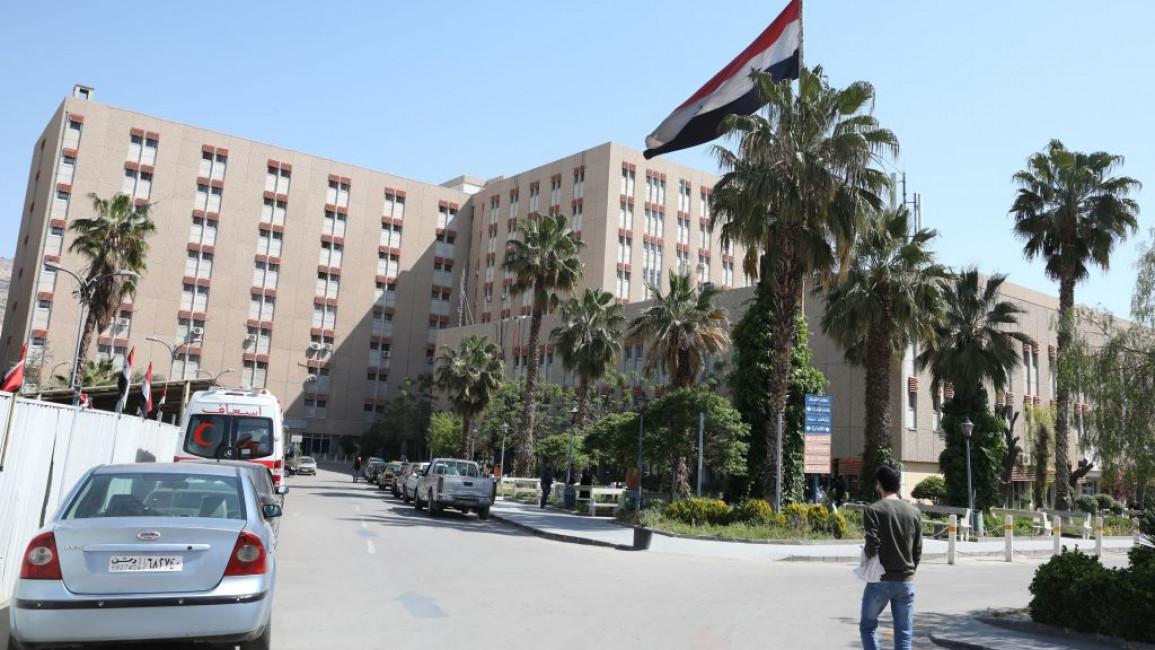Rights activist accuses UN agency of working with suspected aiders of Syrian torture
A human rights activist on Tuesday accused a United Nations agency of working with an organisation accused of being complicit in the torture of students of Syria.
The UN Development Program in Syria has been working with the National Union of Syrian Students (NUSS), which "stands accused by many Syrians of complicity in crimes against humanity against students in Damascus university and other Syrian universities", Mansour Omari said in a campaigns blog post for Amnesty International.
"The Students Union has long been known to work with Syrian Intelligence to suppress peaceful activism or attempts by students to express their opinions in demanding reform and human rights," said Omari, who is Syria correspondent for press freedom group Reporters Without Borders.
"They accompanied Baath Party members and intelligence members inside the universities to beat students, shock them with tasers, drag them out of campuses and hand them to the security forces. The Union even had torture and interrogation rooms inside Damascus University."
The UNDP posted on 12 July about an activity it is working on with the Hult Prize Foundation, a youth empowerment non-profit with a chapter at Damascus University.
One line in the post starts: "In cooperation with the Ministry of Higher Education and the Syrian Student Union."
Omari gave examples of students tortured with the help of the NUSS, including Ayham Ghazzoul, who was a masters student studying dentistry when he was detained inside Damascus University.
Ghazzoul was tortured and beaten severely with iron rods by NUSS members before they handed him over to Syrian security forces, Amnesty said.
One of the Union members who attacked Ayham and supervised his arrest and torture was Iyad Talab, who was head of the Damascus University UNSS office at the time. He is currently a member of the Executive Council of the Union.
Mariam Alhallak, Ghazzoul's mother, was quoted as saying in the blog post that she was shocked to learn of the UNDP’s work with the NUSS.
"The Syrian Students Union is responsible for the arrest and killing of many Damascus University students," Alhallak said.
"Iyad Talab is the criminal personally responsible for killing my son, Dr Ayham Ghazoul. He hit him on the head with a stick causing him to faint. My son had internal bleeding that took his life. Now Talab is honoured by the United Nations for his actions."
A UNDP spokesperson told The New Arab that "no relation ever existed nor is ongoing with the NUSS", and the Union's role in the Hult Prize Foundation activity was limited and indirect.
"As the activities under the competition are targeting students in universities, UNDP has sought necessary coordination with the Ministry of Higher Education and Scientific Research in order to be able to work on campus, who in turn solicited the support of the National Union of Syrian Students, solely to disseminate information about the competition and related trainings, in order to reach the maximum number of students," a UNDP statement sent to The New Arab read.
"We would like to emphasize that there is no formal nor informal agreement between UNDP and the Union, and we have not provided any technical or financial support to the Union, nor to the ministry, neither as part of this activity or in the past."
When asked what the UNDP's stance on the allegations facing the NUSS, the spokesperson told The New Arab that they "usually do not comment about allegations".
The Syrian regime has detained hundreds of thousands of people since war broke out in 2011, which began with the regime crushing pro-democracy protests.
Human rights groups have documented torture, starvation, and the extrajudicial execution of thousands of prisoners in the regime's jails.
Syrian President Bashar al-Assad has denied that torture takes place in regime-held prisons.



